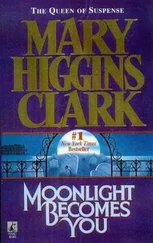I followed him into his private office. Instead of going to his desk, he led me to a seating area with two chairs, a couch, and a coffee table. “I don’t know about you, Ms. MacKenzie,” he began, as he waved me to one of the chairs, “but for me it’s time for midmorning coffee. How about you? Or, like my British friends, would you prefer a cup of tea?”
“Black coffee would be perfect,” I said.
“That’s two of us.”
The receptionist opened the door and poked her head in. “What’ll it be, Mr. Reeves?”
“Two black. Thanks, Marge.” Turning to me, he said, “In this day and age of political correctness, I started to make the coffee myself in our little kitchen. My assistant, my secretary, my receptionist, and my accountant bodily threw me out. They said my coffee would peel the paint from a wall.”
I was so grateful for his attempt to put me at ease that I felt quick tears rush to my eyes. He pretended not to notice. I had offered to bring Mack’s file with me, but he had said he had a duplicate of it. His was on the coffee table. He pointed to it. “Bring me up to date, Carolyn.” His eyes never left my face as I explained how, because of me, Mack had become a suspect in both the Leesey Andrews and Esther Klein cases.
“And now they think Mack has Leesey’s cell phone. Sure, we have a private number, but it’s been the same one since I was a child. Hundreds of people know it.” I bit my lip. It was quivering so much I could not go on. The thought flashed through my mind that the reason Mom wanted to stay in the apartment all these years was to be sure she’d never miss a call from Mack.
Listening to me, Reeves’s expression had become increasingly troubled. “I am afraid your brother is a very convenient suspect, Carolyn. I will be honest. I could see no reason why a twenty-one-year-old man with his background would choose to disappear. Quite frankly, in the last few days, with all the media attention on him, I have been studying his file and doing some follow-up, purely for my own satisfaction. Your father paid me generously, and I could give him absolutely no help in solving your brother’s disappearance.”
He looked past me. “Ah, here is the coffee I did not prepare.” He waited until the cups were on the table and we were alone again before he continued. “Now I am looking at it from the viewpoint of the police. The night the first girl disappeared, your brother was at that club, The Scene. But so were his two roommates, other Columbia students, and about fifteen more patrons. It was a small club, but there were also, of course, a bartender, some waiters, and a small musical group. That list, as complete as I could make it, is there in your brother’s file. Since the police now believe your brother may be involved in that first disappearance, let us think like them. With technology, it is increasingly easy to follow people’s lives. I am proud to say that this agency has a technical system second to none. We will begin to update our knowledge of everyone we know to have been in that club ten years ago when all of this started.”
He took a sip of his coffee. “Excellent. Strength without bitterness. Admirable qualities, don’t you agree?”
I wondered if that was an admonition. Had he sensed my growing bitterness toward Mack, and even, I admitted to myself, to my mother?
He didn’t wait for an answer. “You said you felt that the superintendents, the Kramers, might have something to hide?”
“I don’t know whether they have something to hide,” I said. “I do know that they seemed terribly nervous, almost as if they were being accused of knowing something about Mack’s disappearance.”
“I interviewed them ten years ago. I’ll have my staff check to see if there was anything out of the ordinary in their lives that might be of use for us to know. Now tell me about Nicholas DeMarco. Trust me with any slight nuance that you may have received from him, either positive or negative.”
I wanted to be objective. “Nick is obviously ten years older now.” I said. “He’s more mature, of course. At age sixteen, I had a crush on him, so I don’t know that I could possibly have judged him honestly. He was handsome, he was fun, looking back I think he was flirting with me, and I was young enough to think that I was special to him. Mack warned me away from Nick, and after that, the few times he came to dinner I made it a point to be out with my friends.”
“Mack warned you away?” Reeves raised an eyebrow.
“Big-brother stuff. I guess I was wearing my heart on my sleeve and Mack said that all the girls fell for Nick. Other than that, I would say that when I saw him last, I had the feeling that Nick seemed like someone with a lot on his mind.”
“Did you talk with him about the other roommate in that apartment, Bruce Galbraith?”
“Yes. Nick is out of touch with him. Frankly, I don’t think he liked Bruce very much. He even called him ‘the Lone Stranger.’ I told you I left a message asking to meet with Bruce, but so far he hasn’t responded.”
“Call him again. I doubt that with all the media attention your brother is getting, Bruce Galbraith would ignore your request to see him. In the meantime, I’ll get started immediately on updating our files on the others. Because of the reference to Mother’s Day, the police were already trying to tie Mack to the disappearance of Leesey Andrews, and by extension to the disappearance of all those young women. Now that call to your home from Leesey’s cell phone will make them certain of his guilt. Every clue leads conveniently back to Mack. I am beginning to wonder if everything that has happened began that night in The Scene, weeks before Mack disappeared.”
I pounced on that. “Mr. Reeves, are you saying that someone else may be deliberately trying to tie Mack to the disappearance of those four women?”
“I think it’s possible. As you yourself said, there was a feature article some years ago that made public the fact that your brother only calls on Mother’s Day. Who knows if someone did not tuck that piece of information in his mind and is now using it to deflect suspicion from himself? There are all kinds of identity theft. Following the known pattern of someone who has vanished and chooses not to defend himself may be one of them. Leesey’s abductor has her cell phone. He may also have your unlisted number.”
It was a possibility that made sense. When I left Reeves’s office, I felt that this time I had come to the right person, somebody who would search for the truth without the preconceived notion that Mack had become a killer.
A ccompanied by his lawyer, Paul Murphy, Nick DeMarco returned to the Detective Squad section of the District Attorney’s office on Thursday afternoon. This time, the atmosphere in Captain Ahearn’s office was openly hostile. There were no handshakes, no brief expression of thanks that he had promptly responded to the phone call requesting his presence as soon as possible.
But Nick had other problems on his mind. Early Tuesday morning, after a frantic call from his mother that his father was being rushed to the hospital with chest pains, Nick had flown to Florida. By the time he got there, the tests had so far been negative, but his father had been kept in the hospital to guard against the possibility that he was building up to a heart attack. When Nick entered the hospital room, his mother had rushed into his arms and hugged him fiercely. “Oh, Nick, I thought we had lost him,” she cried.
His father, an older image of himself, propped up on pillows, his face pale, an oxygen tube in his nostrils and an IV drip in his hand, was clearly unhappy. “Nick, I hate hospitals,” was his greeting, “but maybe it isn’t such a bad thing this happened after all. In the ambulance, I was thinking about things I wish I’d said to you, only your mother wouldn’t let me say them. Now you’re going to hear them. I’m sixty-eight years old. I’ve been working since I was fourteen. For the first time in my life, I feel useless, and I don’t like it.”
Читать дальше












